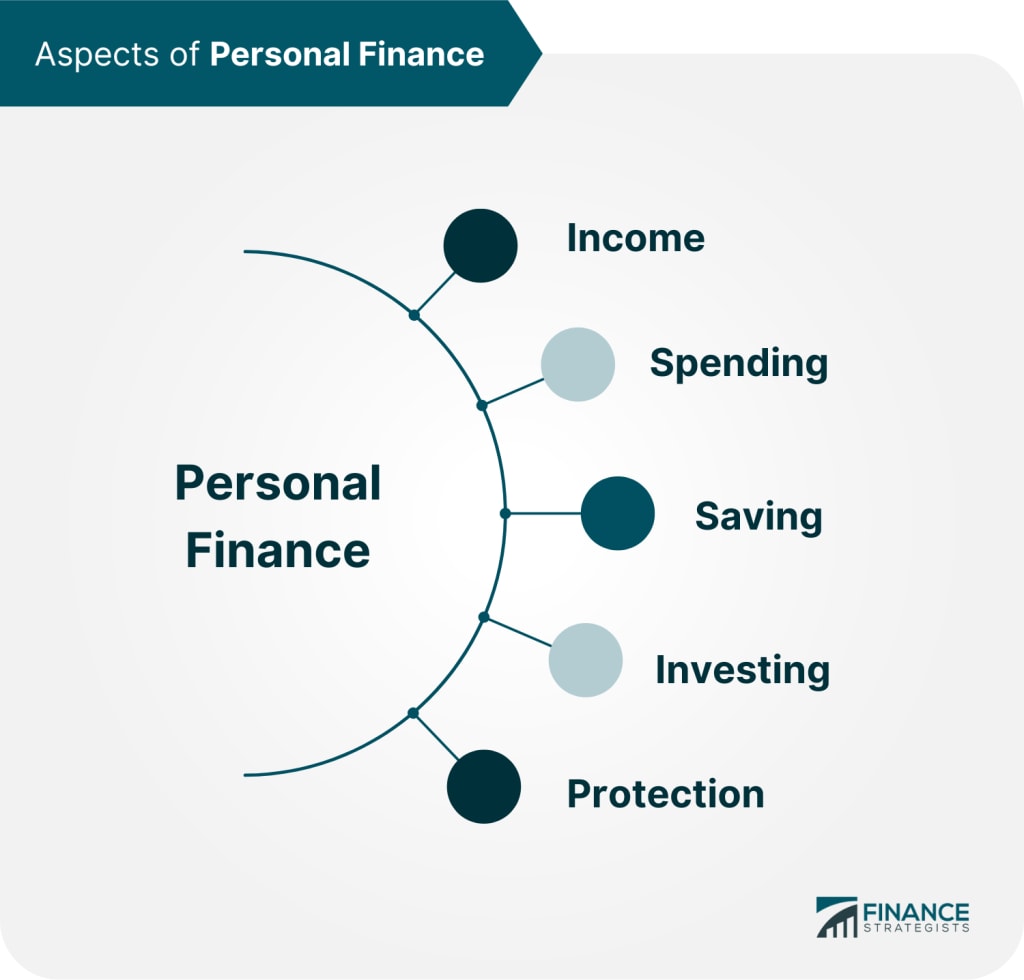Mastering Personal Finance: Tips to Help You Take Control of Your Money
Define what a budget is and how to create one.

Managing personal finances can be challenging, but it's an essential skill that everyone should possess. One of the fundamental aspects of financial management is creating a budget. A budget is a plan that outlines your income and expenses over a certain period, usually monthly, and helps you control your spending, save money, and achieve your financial goals. In this article, we'll discuss what a budget is, why it's essential, and how to create one step-by-step.
What is a Budget?
A budget is a financial plan that helps you keep track of your income and expenses. It's a tool that helps you manage your money, avoid overspending, and achieve your financial goals. A budget is usually created for a specific period, such as a month, and can be adjusted as your income and expenses change.
Why is Budgeting Important?
Budgeting is essential for several reasons. First, it helps you understand your spending habits and identify areas where you can cut back on expenses. This can help you save money and put it towards your financial goals, such as paying off debt, saving for retirement, or buying a house.
Second, a budget helps you avoid overspending and getting into debt. It's easy to overspend when you don't have a plan for your money, but a budget can help you stay on track and avoid unnecessary expenses.
Finally, budgeting can help you prepare for unexpected expenses, such as car repairs or medical bills. By setting aside money in your budget for emergencies, you'll be better prepared to handle them when they arise.
How to Create a Budget
Creating a budget may seem overwhelming, but it's actually a straightforward process. Here's how to create a budget step-by-step:
Step 1: Determine Your Income
The first step in creating a budget is to determine your income. This includes any money you receive regularly, such as your salary, freelance income, or rental income. If your income varies from month to month, use an average of your income from the past few months to create your budget.
Step 2: List Your Expenses
The next step is to list your expenses. Start by listing your fixed expenses, such as rent or mortgage payments, car payments, and insurance. Next, list your variable expenses, such as groceries, entertainment, and dining out. Be sure to include any irregular expenses, such as car repairs or medical bills.
Step 3: Categorize Your Expenses
Once you've listed your expenses, categorize them into essential and non-essential expenses. Essential expenses are those that you need to pay to maintain your basic needs, such as housing, food, and transportation. Non-essential expenses are those that are nice to have but not necessary, such as dining out, entertainment, and vacations.
Step 4: Determine Your Spending Limits
The next step is to determine your spending limits for each category. Start by allocating your income towards your essential expenses. Then, decide how much you can afford to spend on non-essential expenses. Be sure to set aside money for savings and emergencies.
Step 5: Track Your Expenses
Once you've created your budget, it's essential to track your expenses. This will help you see if you're sticking to your budget and identify areas where you need to cut back on expenses. You can use a spreadsheet or a budgeting app to track your expenses.
Step 6: Review and Adjust Your Budget
Finally, review your budget regularly and adjust it as needed. If you find that you're overspending in a particular category, you may need to cut back on expenses or adjust your spending limits. If your income changes, you'll need to adjust your budget accordingly.
Conclusion
Creating a budget
Creating a budget is an essential part of managing your finances and achieving your financial goals. By understanding what a budget is, why it's important, and how to create one, you'll be better equipped to take control of your money and make it work for you.
Remember, creating a budget doesn't have to be complicated. By following the steps outlined above, you can create a budget that works for your unique financial situation. Be sure to track your expenses regularly and adjust your budget as needed.
In summary, a budget is a plan that helps you manage your income and expenses, avoid overspending, and achieve your financial goals. By creating a budget, you'll be able to take control of your finances and make informed decisions about how you spend your money.
FAQs
What is the 50/30/20 budgeting rule?
The 50/30/20 budgeting rule is a popular budgeting strategy that suggests you allocate 50% of your income towards essential expenses, 30% towards non-essential expenses, and 20% towards savings and debt repayment.
How often should I review my budget?
It's a good idea to review your budget regularly, such as once a month, to ensure you're staying on track and making progress towards your financial goals.
What if I have irregular income?
If you have irregular income, it's important to use an average of your income from the past few months to create your budget. You can also set aside money for irregular expenses, such as taxes or medical bills.
How can I stick to my budget?
To stick to your budget, it's essential to track your expenses regularly and make adjustments as needed. You can also use tools such as budgeting apps or cash envelopes to help you stay on track.
What if my expenses exceed my income?
If your expenses exceed your income, you'll need to make adjustments to your budget. This may mean cutting back on non-essential expenses, increasing your income, or finding ways to reduce your essential expenses.
About the Creator
Sehnaz Sultana
I love to educate people





Comments
There are no comments for this story
Be the first to respond and start the conversation.